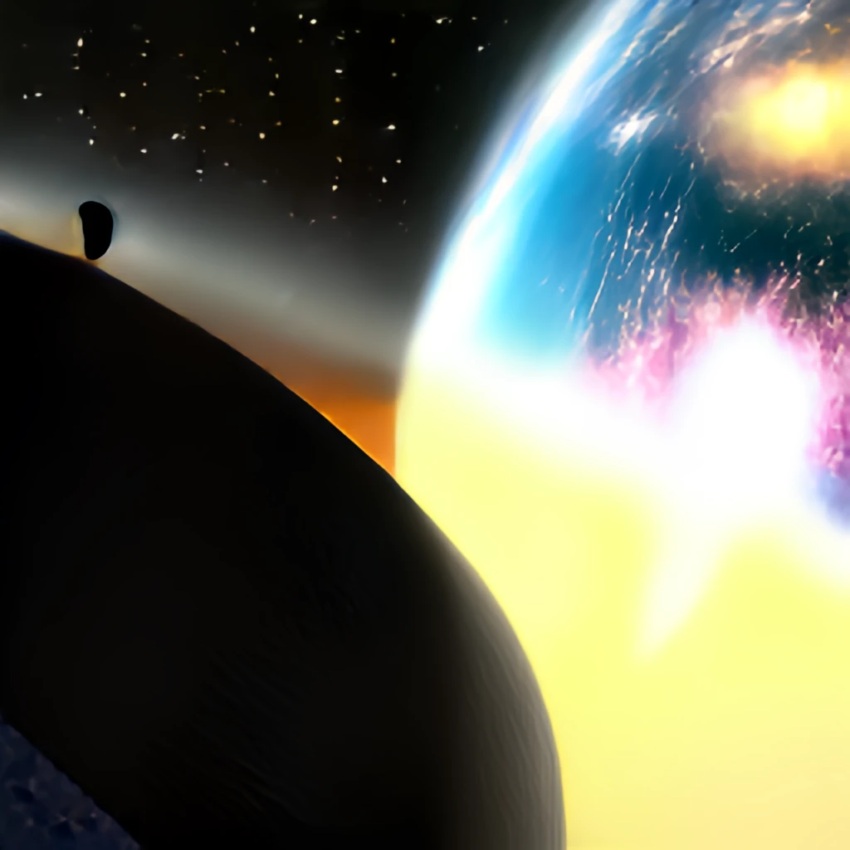One of the understated opportunities afforded me by my routine, late autumnal Atlantic Northeast commutes is that of ample space for meditative reflection. Amid all the atmospheric gloom and bleak environments I find myself regularly traversing, my internal torch of curiosity and insight continues to cast its glow beyond any season. Following a recent spate of conversations surrounding topics like cultural perspectives, accompanied by some personal reading about more abstract concepts like freedom- I’ve found myself contemplating facets of communication and understanding.
A compelling piece of writing (e.g., a book) might convey itself sort of like a lengthy conversation or exchange of concepts or ideas outside of time and space between its author(s) and any reader. We experience phenomena like this on a regular basis whenever we participate in any method of communication. It dawned on me that the scope and scale of our (linguistic or otherwise) vocabulary can influence the breadth and depth of our expression and understanding.
A bulwark of human civilization is the development of complex language. Concrete science on the matter remains inconclusive (as with much of prehistory), with estimates ranging anywhere from roughly 50,000 years ago upwards of 27 million– depending on who or how you ask. All this since modern homo sapiens are first thought to have developed the beginnings of the juvenile sort of premature telepathy in which we routinely engage, in the manner of complex verbal expression. And written language has been pegged, as far as we’ve been able to determine, somewhere much more recently (by comparison) between 3,000 and 3,500 years in our past- in the forms of discovered ancient art and cuneiform (ancient writing).
However, all kinds of life: plants, animals, and things in between participate in an astounding variety of forms of communication which to our experience might not even be perceived or considered as such. Honeybees dance complex angular rhythms to convey mathematically precise locations of pollen rich spoils in relation to the position of their hives and the sun. Whales sing eerie, melodic, intricate submarine songs composed of whistles, clicks, and pulsed calling to one another that can by some estimates span tens of thousands of miles before fading. Even fungus, a sort of interstitial phase of complex multicellular life somewhere between plants and animals, communicates over vast and dense mycelial networks- in a sort of organic internet about everything from the nutritional needs of its ecosystem to that ecosystem’s hazards.

What strikes me about the ways in which our communication differs from all these preceding examples, and countless others, is in its expressive capacity. The things it can grasp and establish, tangibly and intangibly. We are in many ways quite literally animate material iterations of the universe conducting an instance of evolutionary self-examination. But we so often see ourselves as distinctly apart from it, and more pressingly from one another and everything else outside of our immediate selves. And the richness or deficits of our language (and consequently our expression) can powerfully influence the ways in which we continually manifest our fleeting material existences.
We consciously (and subconsciously) occupy realities girded by differential division. Our beings maintain so terrifically much of their structure through contrast. “I’m X, they’re Y. I think A, they think B.” Undoing both the overt and subtler predominance of that kind of logic in self-governance is no small feat! Yet I’d argue it’s an insight-nourishing skill of the utmost importance to hone, in endeavoring to transcend (both internal and external) impositions of limitation.

None of this is to exalt the primacy or superiority of humankind. We’re as burdened by our so far apparent singularity along these dimensions as we are liberated. No other beings we’ve yet encountered have exhibited the same capacity for self-annihilation. Ranging from the internal harms we visit upon ourselves in trying to fall in line with social or ideological expectations, to the scientifically achieved ability to atomically obliterate one another. We’re as exquisitely gifted with the potential for destruction as we are for creation. Consciousness as we consider it is as much a curse as an opportunity, depending on how we ongoingly choose to exert it.
So much of our conduct in pursuit of such things is determined by scales of knowledge and wisdom. Balances of love and fear, empathy and apprehension. The iterative tools of communication like spoken, written, and gestural language often ordain our outcomes. Our selves are shaped by the collective and individualized autobiographical mythopoeses of our lived experiences. At least, anywhere beyond the slightly less unarguable certainty of the now. From the moment we exist, until the moment we don’t- we’re perpetually in a reflexive act of becoming. Who and what we are, and who or what everything else is are in many ways a collection of stories we tell ourselves in service of maintaining our foundations in the reality we perceive. The vestigial legacy of our material existence is only ever memory.
Humans are behaviorally intriguing beings in that we by all accounts seem to be addicts to our own oppression, repression, and destruction. Everything around us from other forms of life to the motions of the universe are rife with examples of some semblance of balance, a litany of bottom-up hierarchical harmony, and yet we persist in concentrating our self-organization in catastrophically top-down fashion. Leadership is a responsibility as much as it is any kind of privilege. Being a leader requires followers, but constituent followers would often do as well or better not to have leaders the ways they so often do. We see examples of this all the time in the phenomenal form of things like “essential workers” during the most recent global calamity to visit us, the COVID pandemic. Without workers there can be no bosses (or “leaders”), but without bosses there would still be workers and the need for whatever work to be done. We’re in this together. As a whole. Always. We’re social creatures. It’s in our nature to work together to achieve things beyond and greater than ourselves.

How good does it feel (to most psychologically healthy people) to help someone else? To be helped by someone else? To work together to accomplish something? To form new bonds and discover new meanings and perspectives? We’re all of us in some way or another bursting with inquisitive wonder, and an innate propensity for community and purpose.
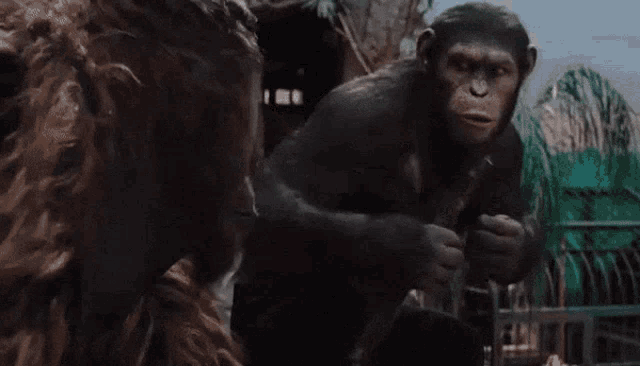
In the material world around us, there’s an intrinsic, definitionally unspoken understanding that everything depends on everything else to some degree or another with minute degrees of shifting and evolution. Yet we’re constantly intellectually and emotionally herded as an exception into thought and expression collectively that all our power and progress is some benevolent inheritance handed down to us by superiors. Nakedly to the benefit of a historically vanishing few.
This kind of regressive and disastrous thinking riddles everything from our multitude of ideologies to their consequential actuations. And it’s further insulated and enforced in so much of our seemingly innate (aforementioned) divisive and frequently binary logic. It’s Coke or Pepsi. Democrat or Republican. White or black. Man or woman. Jew or Gentile. These are all prime examples of the profound consequences of limitations in thought and expression. Self-imposed illusions of narrowed perspective reflexively engaged with and ingrained deep within our collective psyche by practices like indoctrination or habit.
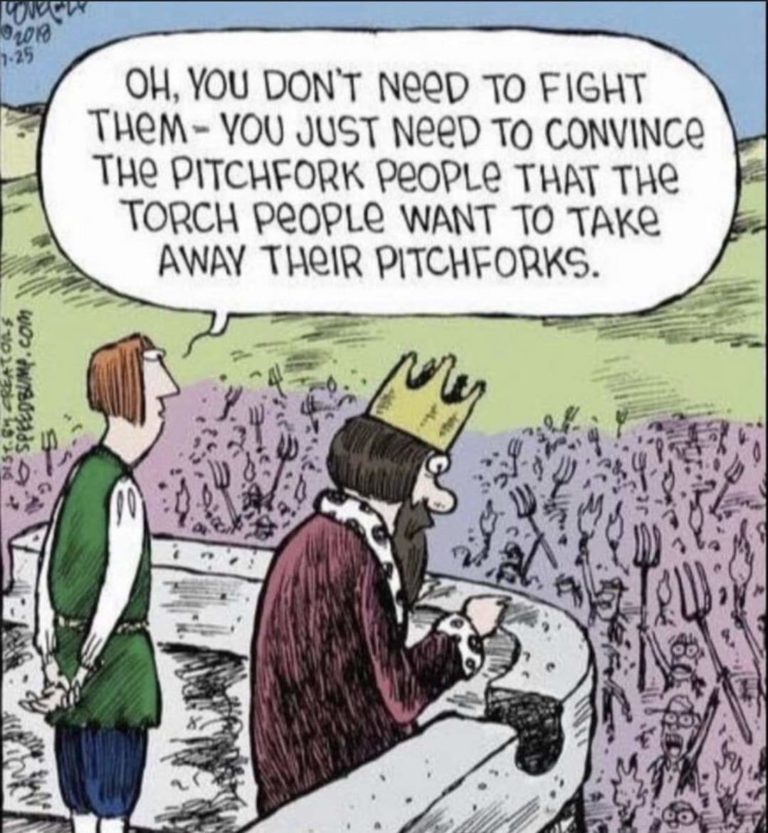
Spit balling, an immediate example that comes to mind as applicable in a way that might be more easily digested by any pedestrian reader of this scrawl are my experiences with hierarchy during my time in the United States navy. You see, there are two categories of leadership within the power and ranking structure of that and every other branch of service in most modern militaries. These are the enlisted leadership and the officers.
Enlisted leadership is comprised rather straightforwardly of precisely what it sounds like. They’re people who enlisted and have stayed enlisted for a while until they’ve acquired the experience, rank, and corresponding privileges and responsibilities fitting someone of their station. Officers are people who enter into full service as an officer, regardless of their rank, automatically above and beyond the power position of any enlisted person. The difference lies primarily in that they have attained a measure of formal academic education (a bachelor’s degree or beyond) and have attended Officer Candidate School (OCS) or other comparable institution.
Common wisdom in the military service holds that officers, especially junior (newer) officers by their nature don’t know as much as senior enlisted leadership (someone who’s been enlisted in the service for around a decade or more). But they’re paid substantially more, treated (often dramatically, especially in the more traditionally steeped branches like the navy) better, and saluted. Power is delegated to them based on their rank and privilege above and beyond what most if not all senior enlisted people overwhelmingly ever attain. It’s an incredibly thinly veiled socioeconomic class stratification rooted in antiquated logic of intellectual strata and held in place by tradition.
A common in-joke among many enlisted veterans whenever someone addresses them as “sir” or “ma’am” is to reply: “Don’t call me that, I work for a living.” Because in the military, only officers are referred to as such. Austerity as a virtue is a recurring motif of both the enlisted and formerly enlisted masses, and their constituent lower and middle socioeconomic classes. Knowledge and wisdom that comes with experience isn’t granted the material preeminence automatically associated with class and titling here as a microcosm of the greater ongoing human struggles with the consequences of its power stratification.
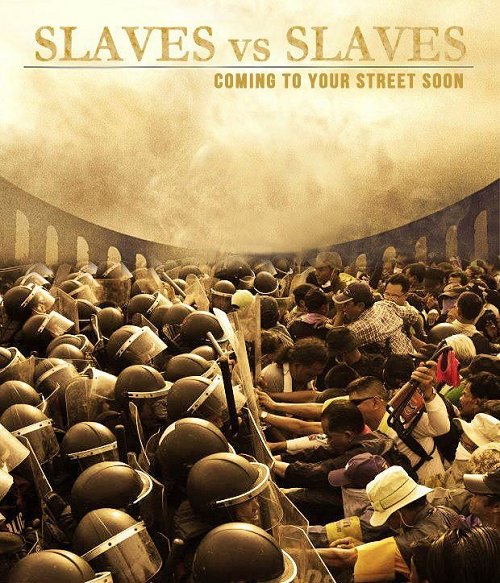
To walk it back a little, what I’m getting at in the simplest terms is how the more we know and understand, the more we understand we don’t know. Such is the nature of the existence we occupy. Empty minds, it’s often been said, make the most noise. Much of that chaos and dissonance is often the source of so much conflict. We can avoid the pitfalls of calamitous ignorance by acknowledging how intrinsic deficits of comprehensive knowledge are to existence. Ignorance is bliss, it’s often sarcastically said- but to remain quagmired in it is not a virtue.
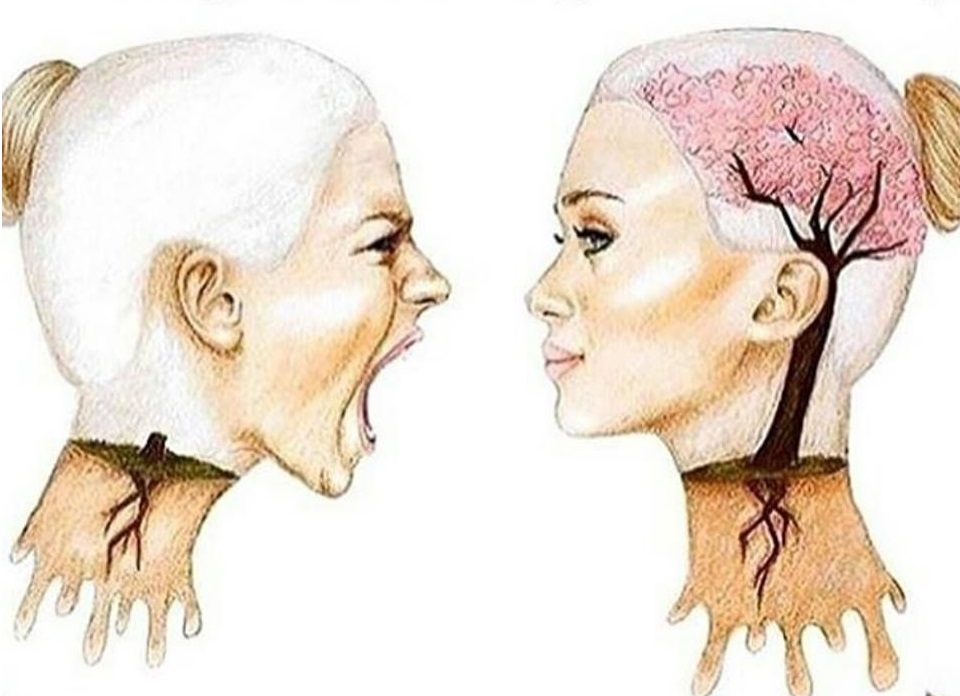
Enriching our philosophical, intellectual, and emotional granularity by expanding our experiential vernacular is principally critical to existential maturation. Expanding your psychological and linguistic vocabularies. The flimsier or more fragile the self is, the more rooted in ego- the more antagonistic a relationship it shares with its native reality and its cohabitants. Incontestable selfishness is ineffably deleterious to wisdom and prosperity. One need simply look around and observe the aggregate empirical truth of such assertions. What has a civilization centered and built upon the adulation of unchecked avaricious self-interest wrought us?
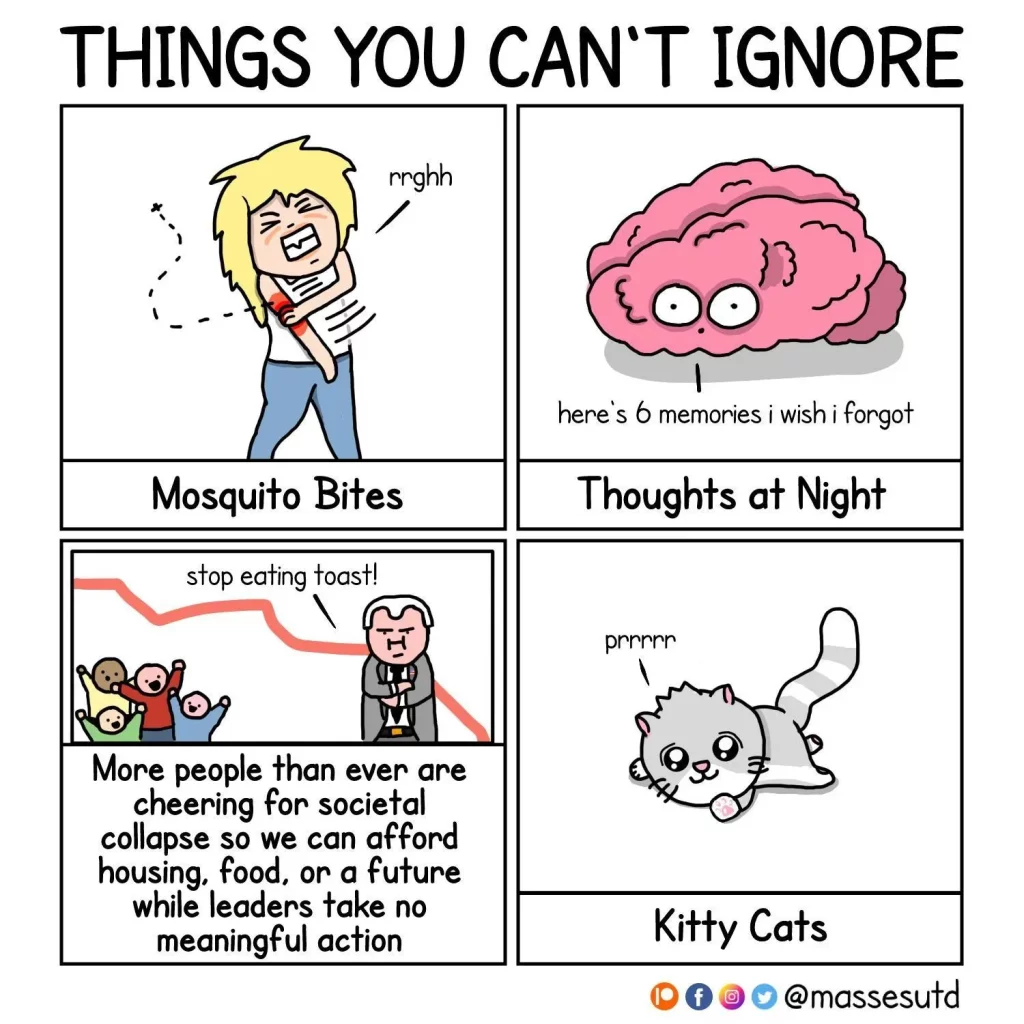
In 𝘛𝘩𝘦 𝘈𝘯𝘢𝘵𝘰𝘮𝘺 𝘰𝘧 𝘔𝘦𝘭𝘢𝘯𝘤𝘩𝘰𝘭𝘺, late 16th century clergyman Robert Burton writes: “homo homini daemon” (man is to man a demon). In the paradoxical way so many fundamental philosophical truths function, an imperative to understanding what’s beyond us is enriching our capacity for self-expression and understanding that we might bridge the gaps outside of ourselves. Who would you be and what would you do if you could not fail? If there was nothing to fear? How much of the conflict within yourself, and in your life is nested in fear or its consequential conflict? Because from where I stand and in all my lived experience, I’ve come to understand those things as the sum of most if not all of our collective, ongoingly inherited damage.
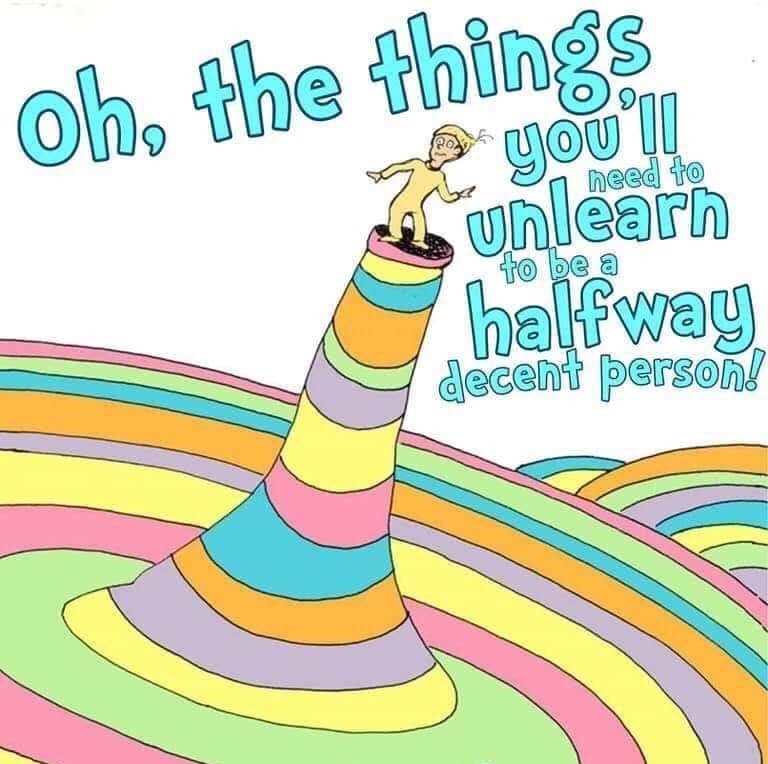
My husband recently said in passing, “You never need to start a war. But sometimes you need to finish one.” And his uncanny pithiness aside, I think it’s true. Sticks and stones may break my bones, but words and ideas are a means to meaning.
I lamented to him in another instance the dearth of substantive engagement and purpose I’ve often come to be made to feel of late in life, in the colorful language of outrage so characteristic of me. I said that it’s often felt like trying to paint a rainbow with the color grey. And that so many of the interactions I 𝐡𝐚𝐯𝐞 had have possessed all the depth of a parking lot pothole after a storm. That people seemed to have no thoughts of feelings in their weary skulls. As if everyone’s become a withered jack o’ lantern with a burnt-out votive candle lodged in its center. Rotting apathetically at what many (I’m continually convinced) instinctively sense collectively is the end of our time.
But there’s an off-ramp from that destination, and it begins with love and its consequential passion and creation. We don’t have to persist in apprehension or suffering, or conflict if we only have the courage to so choose. We’re dread-locked and moribund only in our personal and communal anxieties vis-à-vis what’s beyond safe familiarity. Beyond things as they are, and as our fears dictate they need to remain. We’re overly fond of and dependent upon the hells we know. And the resolving clarity of seeing one another, and the reality around us with more awesome clarity not despite its overwhelming novelty or eccentricity, but precisely for it remains eternally the key. We have nothing to lose but our chains, and everything to gain on the other side of fear.
Feed your head, free your mind- the rest will follow.

